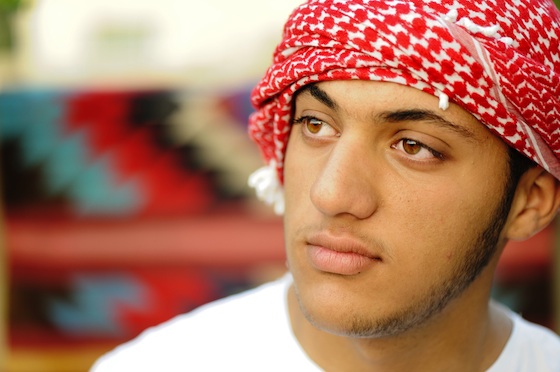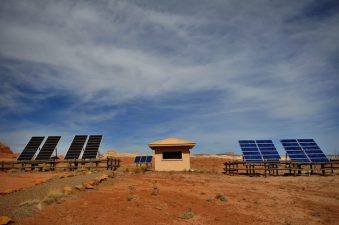 Democracy used to be at the forefront of Arab Youth’s minds, but in 2012 that has changed. Now youth from 12 Arab countries in the Gulf, the Levant and North Africa claim they are more concerned about receiving fair wages for their work and being able to own their homes, though lack of democracy remains an important obstacle to their ambitions.
Democracy used to be at the forefront of Arab Youth’s minds, but in 2012 that has changed. Now youth from 12 Arab countries in the Gulf, the Levant and North Africa claim they are more concerned about receiving fair wages for their work and being able to own their homes, though lack of democracy remains an important obstacle to their ambitions.
This is according to the 2012 Arab Youth Survey. Launched in 2008, the annual survey is conducted by research professionals from Penn Scheon Berland (PSB) who travel to villages and cities in order to interview 2,500 young Arab men and women in person. Here is a list of the top 10 concerns that emerged during these discussions.
- Fair Pay and Home Ownership: The survey found that young men and women are worried about having the resources to own their own home and to receive a fair wage. This is a valid concern. While we were in Tunisia, one of two new countries added to the survey’s scope, we met educated journalists who were living in hovels because their wages are so poor.
- High Cost of Living: It comes as no surprise that Arab youth are finding it difficult to establish a decent quality of life when the cost of living is steadily increasing. Who can forget that the Arab Spring uprisings were largely spurred by the high cost of food or that energy and water prices are growing prohibitively high.
- Lack of Democracy and Civil Unrest are Biggest Obstacles: Egypt is a sterling example of how corruption and civil unrest have interrupted the smooth operation of daily life, and young people told researchers that these two things are the greatest perceived obstacles to achieving their goals.
- The Arab Spring is a Positive Development: This is interesting. Even though the nooks and crannies of the Arab Spring uprisings have not been worked out, most youth perceive it to be a positive development. (On a side note, check out this fascinating new novel Kapow! that traces the uprisings in visually-groundbreaking format.)
- Increased Trust in Government but Corruption Abounds: While Arab youth are tentatively more willing to put trust in their government, they also very concerned about continued corruption. Let’s hope that the government organizations, civil society organizations and the private sector who avail themselves of these insights are paying attention.
- The Arab Spring Won’t Spread: This will be a sigh of relief for governments in the Arab world! Most people believe that the uprisings have come to an end and that they are very unlikely to spread. But if they do well up again, Morocco, Jordan and Algeria are the countries most likely to be affected next.
- Modern Society Challenges Traditional Values: While most young people appreciate the value of their longstanding traditions, the survey found that many also believe that they need to evolve with changing times. This need not be a cause for alarm, but some nations (like Saudi) are likely to crack down on any perceived threats to the old order.
- Aspire to be like the UAE: The United Arab Emirates has a longstanding policy of social inclusion and are leading the charge to enact massive environmental changes, so it comes as no surprise that this is the nation to which young men and women throughout the Gulf, Levant and North Africa look for inspiration. The survey found that most people – if they could – would live in one of the seven Emirates ahead of any other Arab country.
- France is the Most Admired Foreign Country: This is intriguing. Of all foreign countries, France, which recently elected a socialist President, is the one that most young people in the Arab world admire. Rising powers China and India, which couldn’t be more different than France in terms of its environmental, political and social identity, fall close behind.
- TV-watching is Diminishing and News Consumption is on the Rise: This is an enormous relief. Television-watching zombies are being replaced by news-hungry civilians who increasingly look to the internet for their daily bits of information.
Visit ASDA’A Burson-Marsteller Arab Youth Survey 2012 to learn more about the methodology employed to achieve these findings and to consider their implications more fully. The youth are the future. We should take their concerns seriously.
More on Young Arabs:
Arab School Scoops a Coveted Israeli Green Globe Award
eZra3 Remote Farming is Like Farmville but Real
The Bedouins Convert Ill-Begotten Tunisian Mansion into a Skate Park
Image credit: Young Arab Man, Shutterstock



